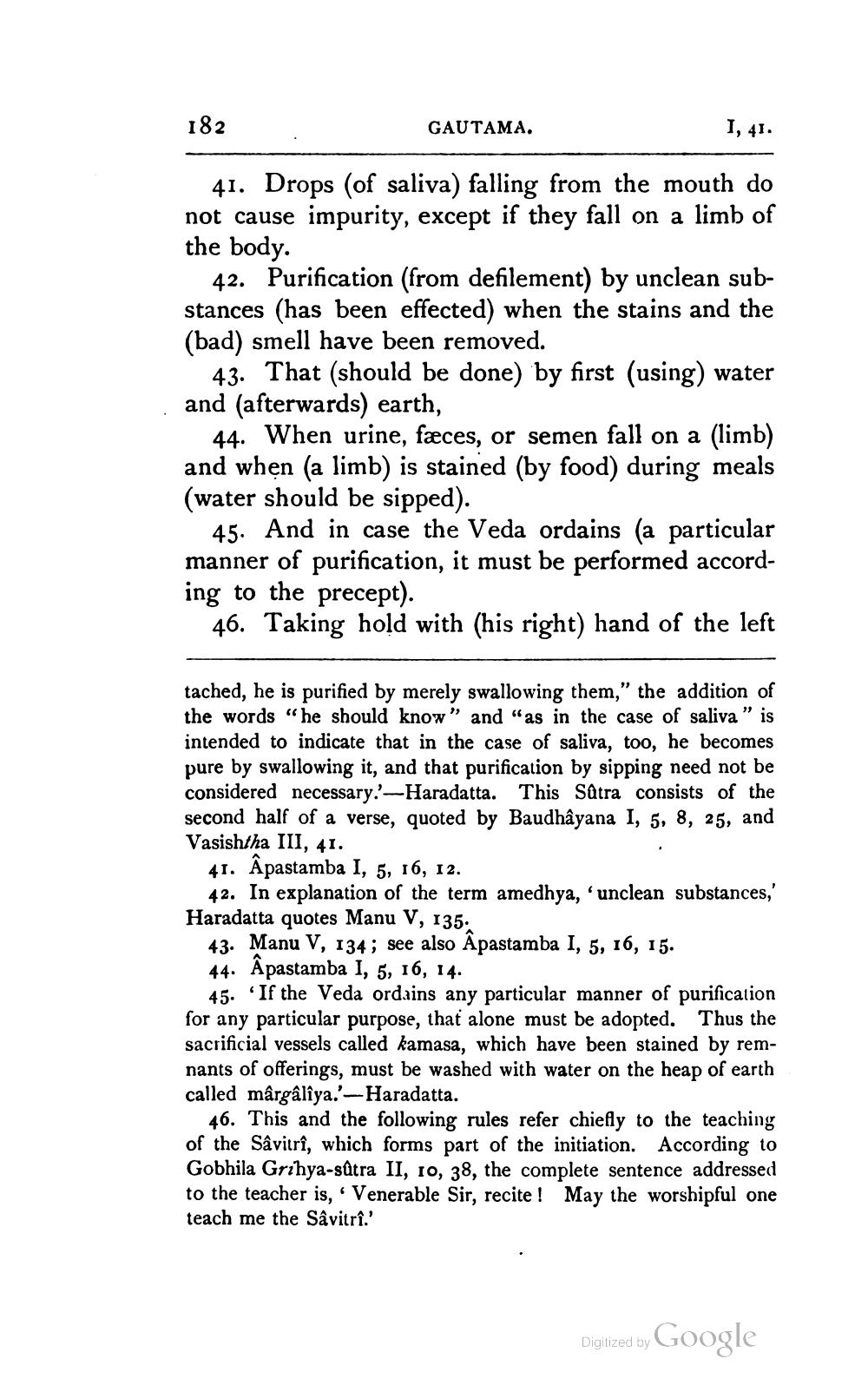________________
182
GAUTAMA.
I, 41.
41. Drops (of saliva) falling from the mouth do not cause impurity, except if they fall on a limb of the body.
42. Purification (from defilement) by unclean substances (has been effected) when the stains and the (bad) smell have been removed.
43. That (should be done) by first (using) water and (afterwards) earth,
44. When urine, fæces, or semen fall on a (limb) and when (a limb) is stained (by food) during meals (water should be sipped).
45. And in case the Veda ordains (a particular manner of purification, it must be performed according to the precept).
46. Taking hold with (his right) hand of the left
tached, he is purified by merely swallowing them,” the addition of the words "he should know" and "as in the case of saliva " is intended to indicate that in the case of saliva, too, he becomes pure by swallowing it, and that purification by sipping need not be considered necessary.'-Haradatta. This Satra consists of the second half of a verse, quoted by Baudhầyana I, 5, 8, 25, and Vasishtha III, 41.
41. Âpastamba I, 5, 16, 12.
42. In explanation of the term amedhya, 'unclean substances,' Haradatta quotes Manu V, 135.
43. Manu V, 134; see also Âpastamba I, 5, 16, 15. 44. Apastamba I, 5, 16, 14.
45. If the Veda ordains any particular manner of purification for any particular purpose, that alone must be adopted. Thus the sacrificial vessels called kamasa, which have been stained by remnants of offerings, must be washed with water on the heap of earth called mârgâlîya.'-Haradatta.
46. This and the following rules refer chiefly to the teaching of the Savitrî, which forms part of the initiation. According to Gobhila Grihya-sūtra II, 10, 38, the complete sentence addressed to the teacher is, ' Venerable Sir, recite ! May the worshipful one teach me the Sâvitrî.'
Digitized by Google




